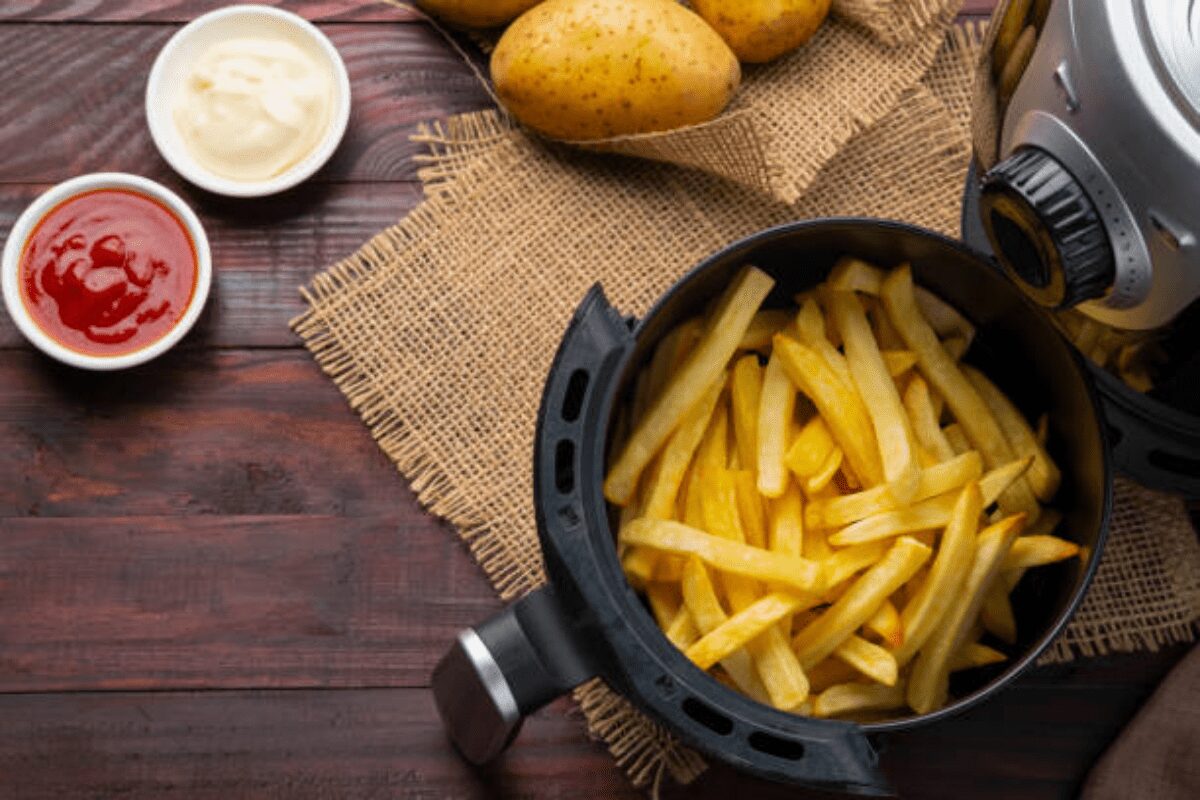Why Don’t Chefs Like Air Fryers: A Deep Dive into Culinary Skepticism
Air fryers have become a popular kitchen gadget in recent years, lauded for their ability to create crispy, fried-like textures without the excess oil.
They are praised for being healthier, more efficient, and user-friendly. Despite this, many professional chefs remain skeptical about the device.
But, why don’t chefs like air fryers ? In this article, we delve into the reasons behind the culinary community’s reservations about air fryers.

The Art of Cooking
For many chefs, cooking is not just about the end result, but the process itself. The traditional methods of frying, roasting, and baking involve techniques honed over centuries, each contributing to the flavor, texture, and overall experience of a dish.
The air fryer, with its reliance on hot air circulation, can strip away much of the nuance and control that chefs cherish.
Flavor and Texture
One of the primary criticisms chefs have about air fryers is the difference in flavor and texture compared to traditional cooking methods. Traditional frying, for instance, imparts a distinct flavor profile due to the interaction between the food and the oil at high temperatures.
This Maillard reaction, responsible for the rich, complex flavors of browned food, is often less pronounced in air-fried foods. Chefs argue that the texture, too, is not quite the same; air-fried food can be crispy on the outside but may lack the moist, tender interior achieved through traditional frying.
Culinary Creativity
Professional chefs thrive on creativity and innovation, often using a variety of techniques and tools to create unique and memorable dishes.
Air fryers, while convenient, can be seen as limiting in this regard. The device’s simplicity and uniformity might not lend themselves well to the diverse and intricate methods that chefs employ to develop their culinary masterpieces.
The versatility of a traditional oven, stovetop, and deep fryer offers far more opportunities for creative expression.
Volume and Efficiency
In a bustling professional kitchen, efficiency and volume are crucial. Air fryers, with their relatively small capacity, are not practical for a restaurant setting where large quantities of food need to be prepared simultaneously.
The need to cook in batches can slow down service and disrupt the workflow, making air fryers less appealing to chefs working in high-demand environments.
Equipment and Space
Professional kitchens are typically equipped with high-quality, specialized tools designed for specific tasks. Adding an air fryer to the mix can be seen as unnecessary clutter, especially when space is at a premium.
Chefs often prefer to invest in multifunctional, high-performance equipment that can handle a variety of tasks rather than a gadget with a more limited range of uses.
The Quest for Perfection
For chefs, the pursuit of culinary perfection is paramount. They are continually experimenting with ingredients, techniques, and equipment to achieve the best possible results.
Air fryers, which are marketed heavily towards home cooks for their convenience and health benefits, may be viewed as a shortcut or a compromise.
This perception can lead to resistance among chefs who prioritize excellence and precision over convenience.
The Cultural Factor
Cooking is deeply rooted in tradition and culture. Many chefs have been trained in classical techniques and hold these methods in high regard. Introducing a new, unconventional appliance like an air fryer can be seen as a departure from these time-honored practices.
There is often a sense of pride and respect associated with mastering traditional methods, which can make chefs hesitant to embrace newer, less conventional tools.
Conclusion
While air fryers have their place in modern kitchens, especially for home cooks seeking healthier and more convenient options, they have not been universally embraced by professional chefs. The differences in flavor, texture, creativity, efficiency, and tradition all contribute to the skepticism.
Ultimately, the culinary world is vast and diverse, and while air fryers may not replace traditional methods in professional kitchens, they remain a useful tool for many home cooks looking to simplify and improve their cooking experience.



